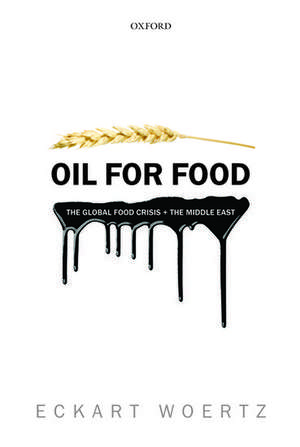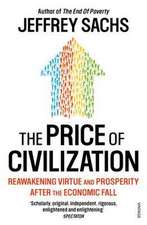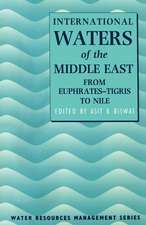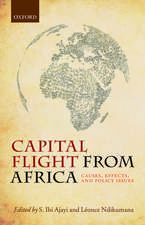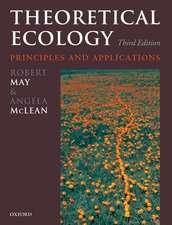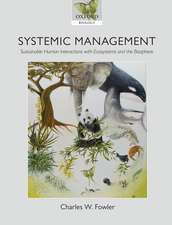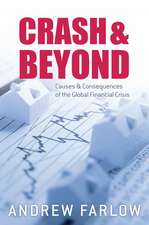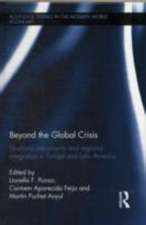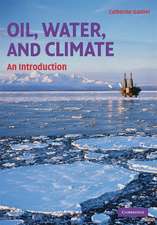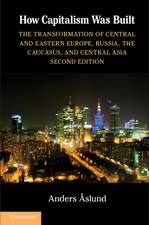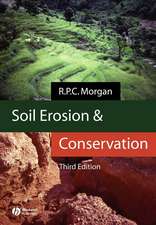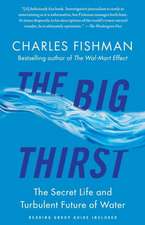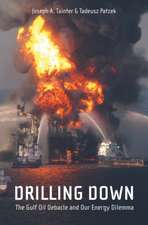Oil for Food: The Global Food Crisis and the Middle East
Autor Eckart Woertzen Limba Engleză Paperback – 18 feb 2015
| Toate formatele și edițiile | Preț | Express |
|---|---|---|
| Paperback (1) | 353.47 lei 31-37 zile | |
| OUP OXFORD – 18 feb 2015 | 353.47 lei 31-37 zile | |
| Hardback (1) | 732.67 lei 31-37 zile | |
| Oxford University Press – 24 apr 2013 | 732.67 lei 31-37 zile |
Preț: 353.47 lei
Preț vechi: 410.37 lei
-14% Nou
Puncte Express: 530
Preț estimativ în valută:
67.63€ • 70.81$ • 55.96£
67.63€ • 70.81$ • 55.96£
Carte tipărită la comandă
Livrare economică 25-31 martie
Preluare comenzi: 021 569.72.76
Specificații
ISBN-13: 9780198729396
ISBN-10: 0198729391
Pagini: 352
Ilustrații: 4 Figures, 2 Maps, 13 Tables
Dimensiuni: 157 x 232 x 19 mm
Greutate: 0.54 kg
Editura: OUP OXFORD
Colecția OUP Oxford
Locul publicării:Oxford, United Kingdom
ISBN-10: 0198729391
Pagini: 352
Ilustrații: 4 Figures, 2 Maps, 13 Tables
Dimensiuni: 157 x 232 x 19 mm
Greutate: 0.54 kg
Editura: OUP OXFORD
Colecția OUP Oxford
Locul publicării:Oxford, United Kingdom
Recenzii
... it is to Woertz's credit that he has done such a skilled job of amassing and synthesizing a tremendous pile of historical and contemporary evidence
This carefully researched book focuses on food security in the Middle East, especially in the Persian Gulf and on the Arabian Peninsula, but it ranges far beyond that subject to delve into the relative impact of oil and food on international trade and the likely effects of climate change on agricultural markets.
Woertzs book is carefully and broadly researched. It will appeal to those interested in the political economies of food in the region as well as to students of the regions transnational linkages and pressures.
The books strength is its solid research that combines archival material with on-site visits and interviews. Woertzs deep knowledge of the region is evident in the discussion of the Gulf States overseas investments in agricultural projects.
The book provides a fascinating geopolitical history of Gulf food security, including the disruptions to food imports caused by World War II and the way that food imports have been used as a foreign policy tool by the United States and others in their dealings with the region.
What these historical tracks show is a pattern embedded in regional political ecology [] The pattern is Braudelian in its simplicity and recurrence, although also one dependent on the centrality of petroleum production to the contemporary economic system. It is the story which Eckart Woertz sets out to tell in Oil for food, the broadest canvass of regional food issues to emerge in some time.
This carefully researched book focuses on food security in the Middle East, especially in the Persian Gulf and on the Arabian Peninsula, but it ranges far beyond that subject to delve into the relative impact of oil and food on international trade and the likely effects of climate change on agricultural markets.
Woertzs book is carefully and broadly researched. It will appeal to those interested in the political economies of food in the region as well as to students of the regions transnational linkages and pressures.
The books strength is its solid research that combines archival material with on-site visits and interviews. Woertzs deep knowledge of the region is evident in the discussion of the Gulf States overseas investments in agricultural projects.
The book provides a fascinating geopolitical history of Gulf food security, including the disruptions to food imports caused by World War II and the way that food imports have been used as a foreign policy tool by the United States and others in their dealings with the region.
What these historical tracks show is a pattern embedded in regional political ecology [] The pattern is Braudelian in its simplicity and recurrence, although also one dependent on the centrality of petroleum production to the contemporary economic system. It is the story which Eckart Woertz sets out to tell in Oil for food, the broadest canvass of regional food issues to emerge in some time.
Notă biografică
Eckart Woertz is senior researcher at the Barcelona Centre for International Affairs (CIDOB). Formerly he was a visiting fellow at Princeton University, director of economic studies at the Gulf Research Center in Dubai, and worked for banks in Germany and the United Arab Emirates.
